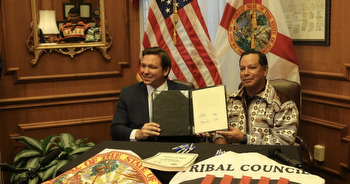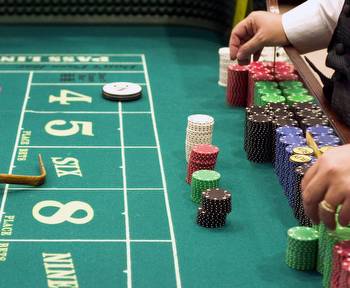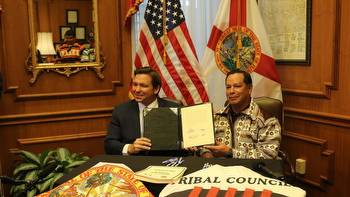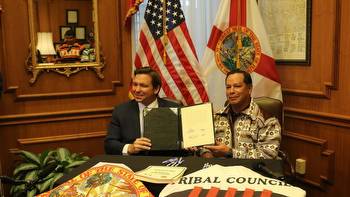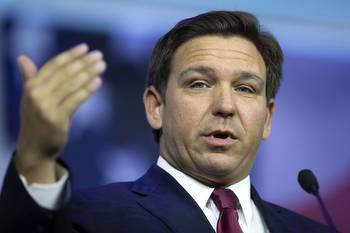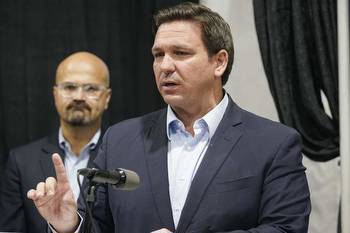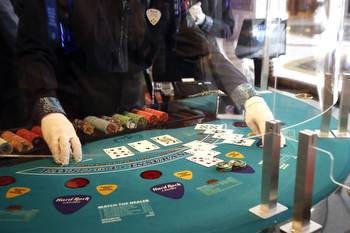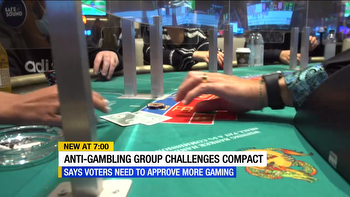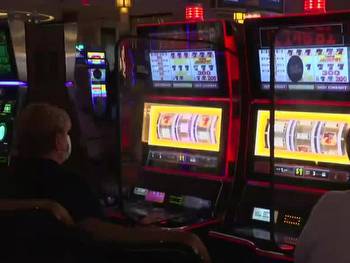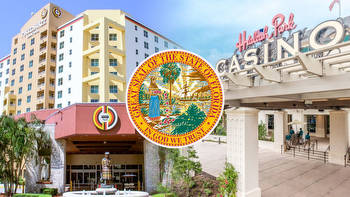Federal Judge Throws Out Florida’s Gambling Agreement With Seminole Tribe
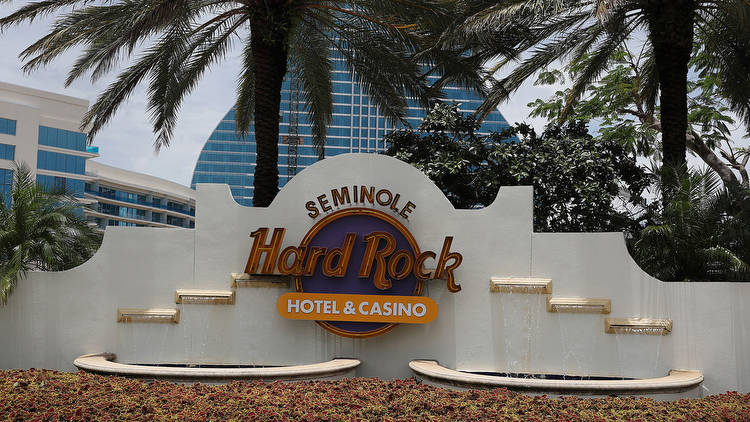
A federal judge has thrown out a gambling agreement Florida Gov. Ron DeSantis signed with the Seminole Tribe.
In her Monday ruling, Judge Dabney L. Friedrich said the compact violates the Indian Gaming Regulatory Act by illegally expanding gambling in the state.
At a news conference Tuesday morning, DeSantis said he hadn't seen the judge's ruling yet but said it will likely be appealed.
"We'll support whatever we can to validate the compact," DeSantis said. "We anticipated that this could happen."
The Seminole Tribe released a brief statement Tuesday on the judge's ruling.
"The Seminole Tribe is reviewing the Judge’s opinion and carefully considering its next steps," the statement read.
The Department of the Interior approved the compact in August. It would have allowed the Seminole Tribe to operate sports betting and add roulette and craps to its seven Florida casinos, with the state potentially receiving $20 billion over the next 30 years.
Earlier this month, the tribe launched online sports betting when the Hard Rock Sportsbook allowed players in Florida to download an app enabling them to make deposits and place wagers on professional football, hockey and soccer games and make bets on other sports.
The “hub-and-spoke” sports-betting plan in the compact would have allowed gamblers throughout the state to place bets online, with the bets run through computer servers on tribal property. The compact says bets made anywhere in Florida “using a mobile app or other electronic device, shall be deemed to be exclusively conducted by the tribe.”
The tribe had been expected to pay billions of dollars to the state because of sports betting and other benefits in the compact, such as being able to offer craps and roulette at tribal casinos.
"We had the ability to negotiate with the tribe, I felt very strongly that, you know their Tampa casino is the most profitable casino in the country, they were paying nothing to the state," DeSantis said Tuesday. "We got a deal that is going to be very good for the state, they wanted to do the sports, we said fine, and the reason why I said that is because it would probably pass on a referendum anyways, and then if a company gets it, the tribe gets it anyway, so we felt that that made sense."
But a group of South Florida businessmen sued the federal government in September to overturn the gambling agreement, claiming that the state constitution requires voters approve an expansion of gambling.
Owners of Magic City Casino in Miami-Dade County and Bonita Springs Poker Room in Southwest Florida contended in the lawsuit that the sports-betting plan violates federal laws and will cause a “significant and potentially devastating” impact on their businesses.
The Magic City Casino issued a statement Tuesday on the judge's ruling.
"Last night’s ruling was a victory for family-owned businesses like ours who pay their fair share in taxes and believe the free market should guide the business operations of gaming venues," the statement read. "The judge clearly understood the blatant violation of IGRA as her ruling demonstrates. We look forward to working with the Governor, Legislature, and the citizens of Florida to pave a path forward that ensures a fair gaming marketplace exists in Florida."









